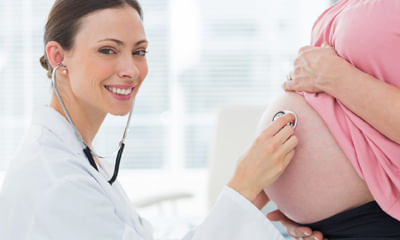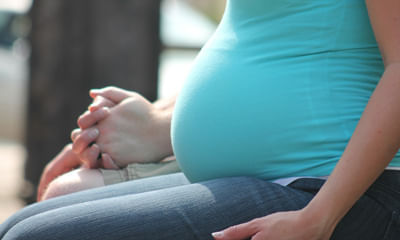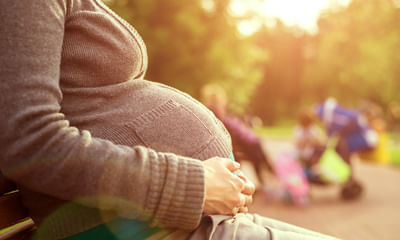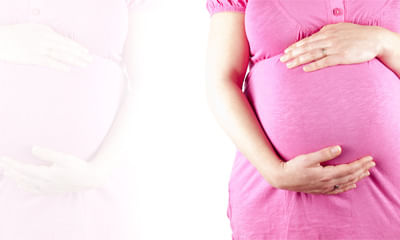Fetal Development Month By Month
Hi, I am 6 weeks pregnant. My doctor told me to have folic acid tablets before 5 month of conception. I used to take it ...
Ask Free Question
Folic acid helps in prevention of neural tube defect of baby. So, now be regular from now onwards.
Please suggest me best medicine. I can't feel sensitivity dead nerves on sides of penis so sex is less enjoyable. Proble ...
Ask Free Question
Hello- to heal the penis sensitivity, the body must rejuvenate the damaged penile vascular tissues and reduce dense scar formation by increasing blood flow and introducing nutrients essential for rejuvenation producing more prostaglandins e-1 and e-3 enhancing natural dilation of the penis arteries modulating transformation growth factor beta-3 for wound-healing without alteration of scar prominence producing more testosterone, arginine, ornithine, and the gaba neurotransmitter sarsaprilla jamaican, cuscuta, rehmannia, and pyrola contain nutrients, hormones, growth factors, and neurotransmitters that are essential to the recovery of injuries caused by penis pumps. In fact, the recent discovery of tgf-beta3 plays a crucial role in the regulation of fetal skin development and collagen formation that can lead to scar-free formation of injured tissues. That is why muira puama (ptychopetalum), pygeum bark (prunus africana), damiana (turnera diffusa), and panax ginseng are included; they help the body produce more testosterone, arginine, ornithine, and amino acid building blocks of structural proteins and tissue rejuvenation.
Em 2 month pregnant and because of some misunderstanding I have taken 2 tablet of folic acid in last five days. And than ...
Ask Free Question
Folic acid is a vitamin required for for fetal development. 2 tabs of folic acid will not cause any harm.
I am 22 years old. I'm 2 month pregnant my fetus is not developing. August 1st my period. When i'm scan I have thyroid . ...
Ask Free Question
lybrate-user ji, Thanks for the query. Have got the Thyroid Fction test done before conception? If not get it done niw. Please talk to your Ob Gynec specialist about the fetal development TSH levels have to preferably < 2mU/L. Thanks.
What cause abnormal babies development in mother womb and in which month it can be known during pregnancy. ...
Ask Free Question
An estimated 303 000 newborns die within 4 weeks of birth every year, worldwide, due to congenital anomalies. Congenital anomalies can contribute to long-term disability, which may have significant impacts on individuals, families, health-care systems, and societies. The most common, severe congenital anomalies are heart defects, neural tube defects and Down syndrome. Although congenital anomalies may be the result of one or more genetic, infectious, nutritional or environmental factors, it is often difficult to identify the exact causes. Some congenital anomalies can be prevented. Vaccination, adequate intake of folic acid or iodine through fortification of staple foods or supplementation, and adequate antenatal care are just 3 examples of prevention methods. Causes and risk factors Although approximately 50% of all congenital anomalies cannot be linked to a specific cause, there are some known genetic, environmental and other causes or risk factors. Genetic factors Genes play an important role in many congenital anomalies. This might be through inherited genes that code for an anomaly, or resulting from sudden changes in genes known as mutations. Consanguinity (when parents are related by blood) also increases the prevalence of rare genetic congenital anomalies and nearly doubles the risk for neonatal and childhood death, intellectual disability and other anomalies. Some ethnic communities (such as Ashkenazi Jews or Finns) have a comparatively high prevalence of rare genetic mutations such as Cystic Fibrosis and Haemophilia C. Socioeconomic and demographic factors Low-income may be an indirect determinant of congenital anomalies, with a higher frequency among resource-constrained families and countries. It is estimated that about 94% of severe congenital anomalies occur in low- and middle-income countries. An indirect determinant, this higher risk relates to a possible lack of access to sufficient, nutritious foods by pregnant women, an increased exposure to agents or factors such as infection and alcohol, or poorer access to healthcare and screening. Factors often associated with lower-income may induce or increase the incidence of abnormal prenatal development. Maternal age is also a risk factor for abnormal intrauterine fetal development. Advanced maternal age increases the risk of chromosomal abnormalities, including Down syndrome. Environmental factors Maternal exposure to certain pesticides and other chemicals, as well as certain medications, alcohol, tobacco and radiation during pregnancy, may increase the risk of having a fetus or neonate affected by congenital anomalies. Working or living near, or in, waste sites, smelters or mines may also be a risk factor, particularly if the mother is exposed to other environmental risk factors or nutritional deficiencies. Infections Maternal infections such as syphilis and rubella are a significant cause of congenital anomalies in low- and middle-income countries. More recently, the effect of in utero exposure to Zika virus on the developing fetus has been reported. In 2015, Brazil detected cases of Zika virus and a spatio-temporally associated increase in microcephaly. By 2016, Brazil reported that of 4180 suspected cases of microcephaly, 270 were confirmed, 462 were discarded and 3448 are still under investigation. This is compared to an average of 163 microcephaly cases recorded nationwide per year. With 6 of the 270 confirmed cases of microcephaly showing evidence of Zika infection, health authorities and agencies are investigating and conducting comprehensive research to confirm a causal link. Following the Zika outbreak in French Polynesia, health authorities reported an unusual increase in the number of congenital malformations in babies born between March 2014 and May 2015. Maternal nutritional status Maternal folate insufficiency increases the risk of having a baby with a neural tube defect while excessive vitamin A intake may affect the normal development of an embryo or fetus. Detection Health care before and around the time of conception (preconception and peri-conception) includes basic reproductive health practices, as well as medical genetic screening and counselling. Screening can be conducted during the 3 periods listed: Preconception screening can be useful to identify those at risk for specific disorders or at risk of passing a disorder onto their children. Screening includes obtaining family histories and carrier screening, and is particularly valuable in countries where consanguineous marriage is common. Peri-conception screening: maternal characteristics may increase risk, and screening results should be used to offer appropriate care, according to risk. This may include screening for young or advanced maternal age, as well as screening for use of alcohol, tobacco or other risks. Ultrasound can be used to screen for Down syndrome and major structural abnormalities during the first trimester, and for severe fetal anomalies during the second trimester. Maternal blood can be screened for placental markers to aid in prediction of risk of chromosomal abnormalities or neural tube defects, or for free fetal DNA to screen for many chromosomal abnormalities. Diagnostic tests such as chorionic villus sampling and amniocentesis can be used to diagnose chromosomal abnormalities and infections in women at high risk. Neonatal screening includes clinical examination and screening for disorders of the blood, metabolism and hormone production. Screening for deafness and heart defects, as well as early detection of congenital anomalies, can facilitate life-saving treatments and prevent progression towards some physical, intellectual, visual, or auditory disabilities. In some countries, babies are routinely screened for abnormalities of the thyroid or adrenal glands before discharge from the maternity unit.
My wife is 8 months pregnant and suffering from thyroid And my baby growth is not much as good as normal baby growth. So ...
Ask Free Question
Dear Lybrate User, Thanks for the query. During pregnancy it is absolutely essential to mantain TSH in the following manner :1st trimester; 0.1 to 2.5 mU/L, 2nd trimester :0.2 to 3.0 mU/L & 3rd trimester :0.3 to 3.0 mU/L. If this is not done then it affects fetal growth including brain and mental development. Food or diet has no role there. It is the dosage of Levothyroxine to be taken to control TSH as mentioned above. It is bit too late for you to have thought about this. Please consult the doctor attending on her. Thanks.
I'm 17 weeks pregnant and I'm craving for lychee and basil seeds drink, can I drink basil seed juice? Not daily, once in ...
Ask Free Question
Hi, There is a contradictory views related to use of Basil seeds or any form of basil seeds during pregnancy. Basil seeds can induce uterine contractions so it should be avoided during pregnancy though it has many health benefits for mother as well as fetal development. 1. Rich source of vitamin K, plays important role in preventing blood loss 2. Good for baby's bones. 3.Source of iron etc Since it increases uterine contractions, better avoid it or you can have it once in a month that too moderate amount as you mentioned.
Hello sir. Sir I am 2 month pregnant so thyroid test is profrm my t3 level is 103 t4 is 6.1 is in normal range but tsh i ...
Ask Free Question
Lybrate-user ji, Thanks for the query. Usually clinical hypothyroidism is diagnosed when TSH crosses >10 mU/L and there are troublesome symptoms present in a normal person. But if a lady desires to have pregnancy ten it is necessary to maintain TSH < 2 before conception and also during the gestation period. There are trimester specific values mentioned of TSH. But it is ideal to maintain < 2 mU/L, to have proper fetal development and healthy outcome of the pregnancy. If you have any specific questions please do come back. Thanks.
I am eight months pregnant. Baby weight is 1.3 kg My weight is 64 kg. I have gained 7 kg in total in pregnancy. Please s ...
Ask Free Question
Hello Lybrate user, During, pregnancy it not safe to prescribe any thing without examining the report. As before prescribing any thing we need some information. Vitals.Medical history. Family history. Occupation.Physical activity. Daily routine And many more We have pregnancy diet plan which include . diet plan for each trimester. Diet plan for curing deficiencies and for better foetus development. Diet plan to cure symptoms occurs during 2nd trimester like gestational diabetes, thyroid, overweight, bp. Etc.Post pregnancy diet plan So, if you want to contact us privately ,you can contact us directly thru Lybrate.
I have thyroid problem and so that doctor prescribed me to take thyrox 25 medicine before 3 months ago and m doing that ...
Ask Free Question
Lybrate-user ji, Thanks for the query. It is necessary for you to bring down TSH level to around 2 mU/L if you are desiring to go for pregnancy. Since the TSH level is not mentioned it is difficult to comment. Through the gestation period TSH should be around 2 mU/L only. Otherwise fetal development and outcome of pregnancy will be affected. Secondly it is better if you try and reduce weight by at least 5% of present. Your ideal body weight should be around 55 kgs. Thanks.







